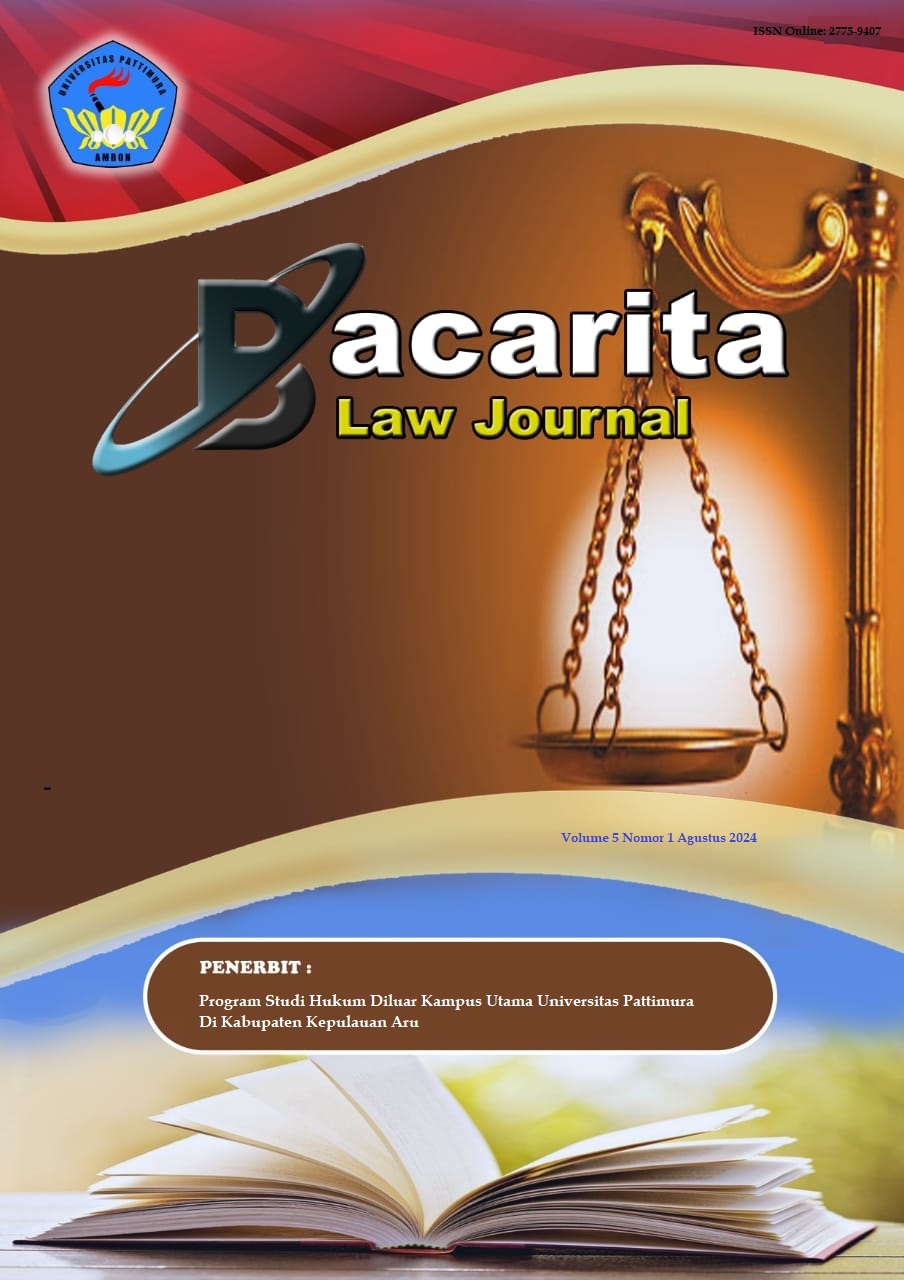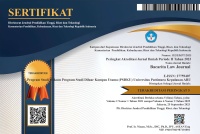Setting the Deadline for Determining Suspects: A Comparative Study of the Draft Code of Criminal Procedure and the Code of Criminal Procedure
Abstract
This article discusses the regulation on the limit for suspect determination based on the Indonesia Criminal Procedure Code Draftand the Code de procédure pénale (French Criminal Procedure Code). The purpose of this article is to determine the regulation on the time limit for suspect determination based on the Indonesian Criminal Procedure Code Draft and the French Criminal Procedure Code. This research uses a normative legal method wit a statutory, conceptual, and comparative approach. Result of this study are the French Criminal Procedure Code Draf has not explicity regulated the time limit for suspect determination, while the French Criminal Procedure Code regulates the time for suspect determination, which a maximum of 2 (two) years. The implication of not regulating the time limit for suspect determination will violate the principle of due process of laaw and universal human rights and the occurrence of arbitrary law enforcement officers in enforcing criminal procedure law.
Downloads
References
Anom Sutrsino, “Peran Hakim dalam Mewujudkan Due Process of Law Pada Sistem Peradilan Tata Usaha Negara di Indonesia”, Locus: Jurnal Konsep Ilmu Hukum 5, no, 1, (2025): 20.
Ardli Nuur Ihsani, “Urgensi Perluasan Objek Praperadilan dalam Tindak Pidana Korupsi Ditinjau dari Perspektif Perlindungan Hak Asasi Tersangka,” Legal Standing: Jurnal Ilmu Hukum, 1 no. 2 (2017): 70.
Bahran, “Penetapan Tersangka Menurut Hukum Acara Pidana Dalam Perspektif Hak Asasi Manusia”, Syariah: Jurnal Ilmu Hukum dan Pemikiran 17 no. 2 (2017): 231.
Deva Dwi Chandra, “Tinjauan Yuridis Terhadap Pelaksanaan Due Process of Law Sebagai Elemen Fundamental Untuk Melindungi Hak Dalam Sistem Peradilan Pidana Di Indonesia, Jurnal Hukum Dan Kebijakan Publik l 7 no. 2, (2025): 189.
Efendi, Erdianto, “Relevansi Pemeriksaan Calon Tersangka Sebelum Penetapan Tersangka”, Jurnal Hukum, no. 2 (2020): 272.
Erdianto Efendi. “Relevansi Pemeriksaan Calon Tersangka sebelum Penetapan Tersangka”, Undang: Jurnal Hukum 3 no. 2 (2020): 270.
Hamaminata, Gani.”Perkembangan sistem Peradilan Pidana di Indonesia. ”Jurnal Hukum, Politik dan Ilmu Sosial 2, no 4, (2023): 52-64.
I Made Wiradana, “Analisis Keberadaan Sistem Peradilan Pidana: Bentuk Keterpaduan Antar Subsistem Serta Keadilan Bagi Masyarakat.”Jurnal Kertha Semaya, 12 no. 12 (2024): 3372-3381.
Jefferson Hakim, Diferensiasi fungsional dalam kuhap masih relevan atau menjadi sumber masalah, https://www.hukumonline.com/berita/a/diferensiasi-fungsional-dalam-kuhap--masih-relevan-atau-menjadi-sumber-masalah-lt6751e3743b726/?page=all.
Khoirul Amin, ”Perlindungan Hukum Terhadap Penetapan Status Tersangka Ditinjau Dari Perspektif Hak Asasi Manusia”, Journal Of Sharia 03, no 1, (2024): 3.
M. Agus Yozami, Eks Dirut Pelindo II RJ Lino Divonis 4 Tahun Penjara, https://www.hukumonline.com/berita/a/eks-dirut-pelindo-ii-rj-lino-divonis-4-tahun-penjara-lt61b925a64913b/.
M. Yahya Harahap, Pembahasan Permasalahan dan Penerapan KUHAP: Penyidikan dan Penuntutan, Jakarta: Sinar Grafika, 2002.
Noviantama, Doni,”Analisa Hukum Penetapan Tersangka yang Didasarkan Alat Bukti Hasil Penyelidikan Oleh KPK”, Lex Renaissance 9 no. 2 (2024): 262.
Ramadan Tabiu, ”Ketidakpastian Hukum Jangka Waktu Penetapan Status Tersangka dari Proses Penyidikan sampai Pelimpahan Perkara Persidangan”, Jurnal Hukum Priosis 5, no 2, (2016):188.
Sastra, Budi Panjaitan, “Perkembangan Hukum Acara Pidana Indonesia,” Jurnal Keadilan 5, no. 2, (2018): 118.
TimDetik, Senangnya RJ Lino Ditahan KPK Usai 5 Tahun Jadi Tersangka, https://news.detik.com/berita/d-5509744/senangnya-rj-lino-ditahan-kpk-usai-5-tahun-jadi-tersangka.
Zainal Asikin, Amiruddin, Pengantar Metode Penelitian Hukum. Jakarta: RajaGrafindo, 2020.
Copyright (c) 2025 Rahmahwati Silvia Riani, Adi Freddy Bawaeda

This work is licensed under a Creative Commons Attribution-NonCommercial 4.0 International License.
Authors who publish their manuscripts in this Journal agree to the following conditions:
- The copyright in each article belongs to the author, as well as the right to patent.
- Authors are able to enter into separate, additional contractual arrangements for the non-exclusive distribution of the journal's published version of the work (e.g., post it to an institutional repository or publish it in a book), with an acknowledgment of its initial publication in this journal.
- Authors are permitted and encouraged to post their work online (e.g., in institutional repositories or on their website) prior to and during the submission process, as it can lead to productive exchanges, as well as earlier and greater citation of published work.
- Authors have the right to self-archiving of the article (Author Self-Archiving Policy)















